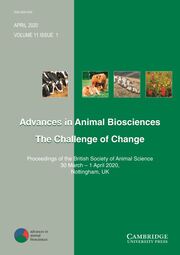This 11th conference marks the 20th anniversary of the ECPA conference series and its first return to the UK since the inaugural conference in Warwick in 1997. There is no doubt that Precision Agriculture has grown and evolved considerable in the intervening 20 years. However, while new agri-engineering and agri-IT solutions have altered the way that we apply Precision Agriculture, the fundamental objective of making better spatial and temporal agronomic decisions has remained constant. The importance of this conference series and its proceedings as a method of disseminating novel research and innovation within the Precision Agriculture community has also been a constant.
The initial call for this conference generated aver 300 expressions of interest and we are pleased to present 139 papers in these proceedings that have been peer-reviewed and edited for content. The papers represent a wide variety of precision agricultural applications from the traditional areas of nitrogen sensing and crop sensor development to more emerging areas of data analytics and information systems. Reflecting the conference’s location in a northern European city, where grass is a dominant production system, the organisers are particularly pleased to be able to present a dedicated section on precision pasture and forage management. There is also an increased social science and translational presence in the proceedings reflecting the evolution of Precision Agriculture since the first European Conference on Precision Agriculture.
As ever, the quality and rigour involved in publishing these proceedings is dependent on the support of the wider Precision Agriculture community in the reviewing process. The editors and organisers would like to extend their heartfelt appreciation to all the reviewers who assisted in this process. It is impossible to do this without such help. As the Editor-in-Chief, I am also indebted to the other Editors who supported me in this process. We sincerely hope that you find these proceedings useful, not only at the conference but also from your bookshelf for many years to come.


